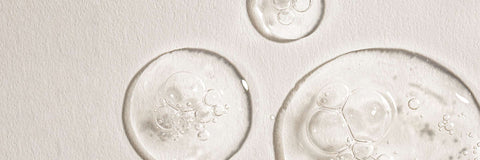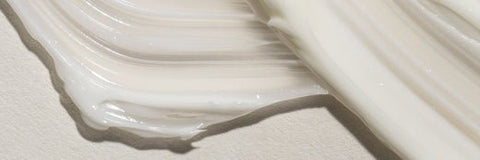The best exfoliator for your skin type depends on a few things: what you’d like your exfoliator to do, what ingredients you’re looking for, and most importantly, what skin type you have. Exfoliation is one of the most important, beneficial steps in skin care, yet it’s one many people skip. If anything can really make skin glow, it’s proper exfoliation.
In this article, we’re going to talk about ingredients in exfoliators, the different types of exfoliators, the benefits of exfoliation, and which exfoliators are best for which skin types. Our aim is to help you learn how to choose the best exfoliator for your face.
IN A NUTSHELL
Main Takeaways: It’s important for everyone to exfoliate; but whether or not you use a physical or chemical exfoliant– and how often you use it– depends on your skin type.
Good to Know: Plant enzymes like papaya and pineapple gently “eat” away at the top layer of skin, removing dead skin cells and revealing new, healthy skin.
Recommended Products: Prince Charcoal Detox Mask.
What Does Exfoliation Do?
Exfoliation is the process of sloughing off dead skin cells to reveal healthy, new skin. Because it rids of the old, dull skin, as well as surface dirt and oil, exfoliation drastically improves the appearance of skin tone and radiance. It’s one of the easiest, fastest ways to renew the look of beautiful skin.
Different Types of Exfoliators: Physical vs. Chemical
One key to picking the best face exfoliator is to understand the different kinds of exfoliators out there. There are two major types: physical exfoliants and chemical exfoliants.
Physical exfoliating uses abrasive ingredients or physical objects to exfoliate the skin; for example a dry brush, a washcloth, grains, sugar, beads, nuts, granules, powders, or any other physical tool. One potential drawback to physical exfoliation is that it can cause micro tears in the skin. These tears can cause irritation, or in very extreme cases– infection.
Chemical exfoliation involves using an acid that dissolves the bonds that allow the dead skin cells to stay on your skin. Don’t let the terms “acid” and “chemical” worry you- acids are naturally found in your skin, and these work on a chemical, or molecular, level to smooth your skin. Chemical exfoliation in general is much more gentle on your skin than physical exfoliation.
Best Exfoliators for Different Skin Types
One of the keys to choosing the best face exfoliator is knowing which type of exfoliant works best for your skin type. Let’s discuss the best exfoliator for your skin type:
Best Exfoliators for Normal Skin
Lucky you, with your dependable, predictable, skin. Those with normal skin can use whichever face exfoliator you want--physical or chemical. We recommend alternating methods and only exfoliating every few days. As for ingredients, you pretty much have your pick of the litter; exfoliators with bentonite clay or charcoal are perfect for maintaining healthy skin.
Best Exfoliators for Oily Skin
Oily skin can also use both physical and chemical exfoliation. Generally, those with oily skin have thicker skin, and thus will benefit from physical exfoliation. The acids in chemical exfoliants will help purify your skin of excess oil. Glycolic or salicylic acid are perfect for controlling the oil in your skin. Like those with normal skin, be sure not to over-exfoliate. If you have sensitive oily skin, read below for our recommendations for those with sensitive skin.
Best Exfoliators for Dry Skin
Depending on how dry your skin is, we recommend that those with dry skin stay away from physical exfoliants, as they can irritate your skin further. A chemical exfoliant will gently and efficiently remove dead skin cells on the surface, thereby helping your moisturizer better absorb. Gentle exfoliants like kaolin clay and lactic acid are great for dry skin.
Best Exfoliators for Mature Skin
If you have mature skin, a gentle, chemical exfoliator will help restore mature skin’s natural glow and will help revitalize dull skin. As we age, our skin cells do not turnover as quickly as they did in our youth, resulting in dead, dull skin cells clinging to the surface. Removing these will reveal newer skin underneath and allow any other serums and treatments to be more effective. We recommend products that include AHAs (alpha hydroxy acids), such as glycolic acid.
Best Exfoliators for Sensitive Skin
Like those with dry skin, people with sensitive skin should really stay away from physical exfoliators, as they can further irritate the skin. Chemical exfoliants help unclog pores and keep skin smooth are crucial to those with sensitive skin. Gentle exfoliation helps to maintain calm, smooth skin that great for sensitive skin.
Plant Enzymes
In addition to acids, plant enzymes also make great, gentle, chemical exfoliators as well. These natural exfoliators essentially eat the top layer of dead skin off the face, leaving it glowing and vibrant. Think of plant enzymes as the Pac Man of exfoliation! Because they only work on the top layer of skin, they’re considered to be more gentle than many acid exfoliants. Plants such as pineapple, papaya, and even pumpkin all make great enzyme exfoliators!
Remember that your skin changes for all kinds of reasons--weather, hormones, age, etc., so when you choose a face exfoliator, make sure you’re treating your skin for its current condition.

Ingredients in Exfoliators
From oatmeal to acids, there is a plethora of incredible skincare ingredients available to exfoliate your skin. Let’s have a look at some of the ingredients you’ll find in exfoliators, so you can make the best possible decision about which exfoliator you want to use.
Ingredients found in physical exfoliators:
- Jojoba beads are basically little wax beads made from jojoba oil. Jojoba oil is very similar to the natural oil in your own skin, so it will nourish the skin as it exfoliates. Also, jojoba beads are smooth and round, so they won’t cause micro tears in the skin.
- Olive seed powder is derived from olive pits and is very finely ground, so it’s not damaging to skin when used as an exfoliator.
- Walnut shells are commonly found in drugstore face scrubs. However, they are much too abrasive for the skin on your face, and we recommend limiting use of it to the skin on your body.
Ingredients found in chemical exfoliators:
As we discussed above, chemical exfoliators are acids that help renew the look of beautiful skin. There are two main groups within those acids: AHAs or Alpha-Hydroxy Acids and BHAs, which are Beta-Hydroxy acids.
AHAs are considered to be the more gentle of the acid groups. They exfoliate the top layer of skin (the epidermis) by basically destroying the bonds that hold skin cells together. These natural, water-soluble acids are found in everything from milk to fruit.
A few AHAs commonly found in exfoliants are:
- Lactic acid helps brighten and even skin tone, soften rough skin, and reduces the appearance of pores.
- Glycolic acid helps smooth the skin's surface and is great for most skin types.
- Citric acid is found in fruits like lemons, grapefruits, and oranges. In addition to breaking up the bonds that hold skin together, citric acids also help reduce the appearance of fine lines and wrinkles.
BHAs, on the other hand, are considered more powerful exfoliants, as they can work deeper in your skin and pores. The most commonly used BHA in skin care is salicylic acid. It is most commonly used in the treatment of acne.
Clays:
Clay is a time-tested exfoliate that does a phenomenal job of unclogging pores and restoring skin’s natural glow and vibrance.
Two different kinds of clays that work beautifully as exfoliants are bentonite and kaolin. Bentonite clay comes from volcanic ash; it works to effective purify your skin, leaving skin healthy-looking and even. Kaolin clay also unclogs pores and exfoliates the skin, but does so on a slightly more gentle level.
Activated Charcoal:
Activated charcoal is one of those skin care ingredients that’s really been getting a lot of attention lately. It works by grabbing onto impurities and binding them to itself, thus detoxifying your skin when it is removed.

Benefits of Exfoliating
There are many benefits of exfoliating your skin. Here are a handful of reasons you should incorporate exfoliants into your skincare routine:
- It gives your skin a glow.
- It keeps your skin clean.
- It helps moisturizer and serums perform better.
- It helps even out skin tone.
- It helps soften skin.
- It helps reduce the appearance of fine lines and wrinkles.
- It helps minimize the appearance of pores.
How to Exfoliate
Exfoliation is easy to incorporate into your skin care routine. Here’s how to add it to your regimen:
1. Cleanse the skin.
2. Exfoliate. Whether you are using a scrub, liquid exfoliate or a mask, this is where you would apply your exfoliant. We love using our Prince Charcoal Natural Detox Mask to draw out impurities, cleanse pores, and nourishes the skin. It includes bentonite clay, kaolin clay and glycolic acid for ultra-smooth skin.
3. Tone the skin.
4. Apply serum. Exfoliating allows your skin to better absorb your treatment serums, thus making them more effective.
5. Treat with eye cream.
6. Moisturize the skin. Don’t forget to apply moisturizer to your neck, too.
Remember to exfoliate the rest of your body! It is often neglected and needs exfoliation as much as our face does.
When to Exfoliate
As we mentioned above, the best time to exfoliate is right after you’ve cleansed the skin and before you’ve used any other product. If you’re using a gentle mask, you can exfoliate one to three times a week to start. If your skin is strong enough, you can increase that to three-to-five times a week, or even every day if you feel you need it.
So, that’s how to choose the best face exfoliator for your particular skin. It’s a step that shouldn’t be skipped, so add it to your routine today! If you aren’t sure where to start, we recommend our Prince Charcoal detox mask.










